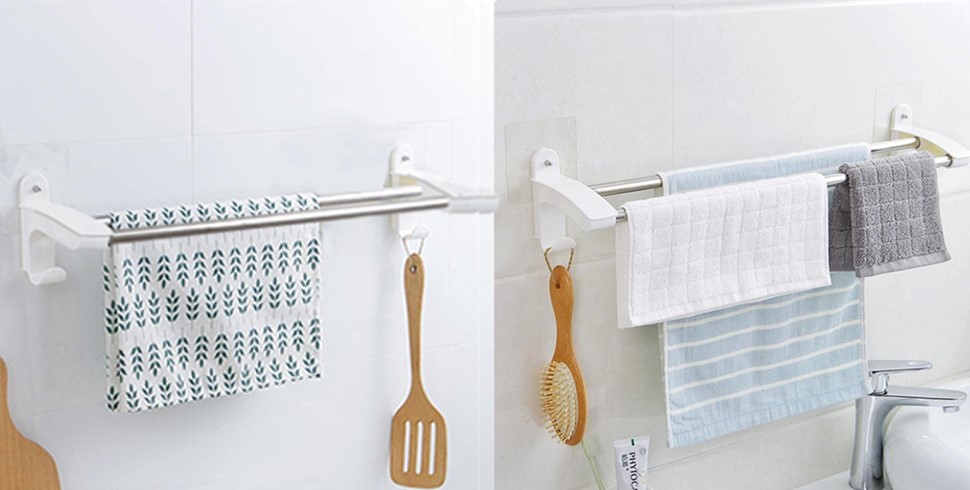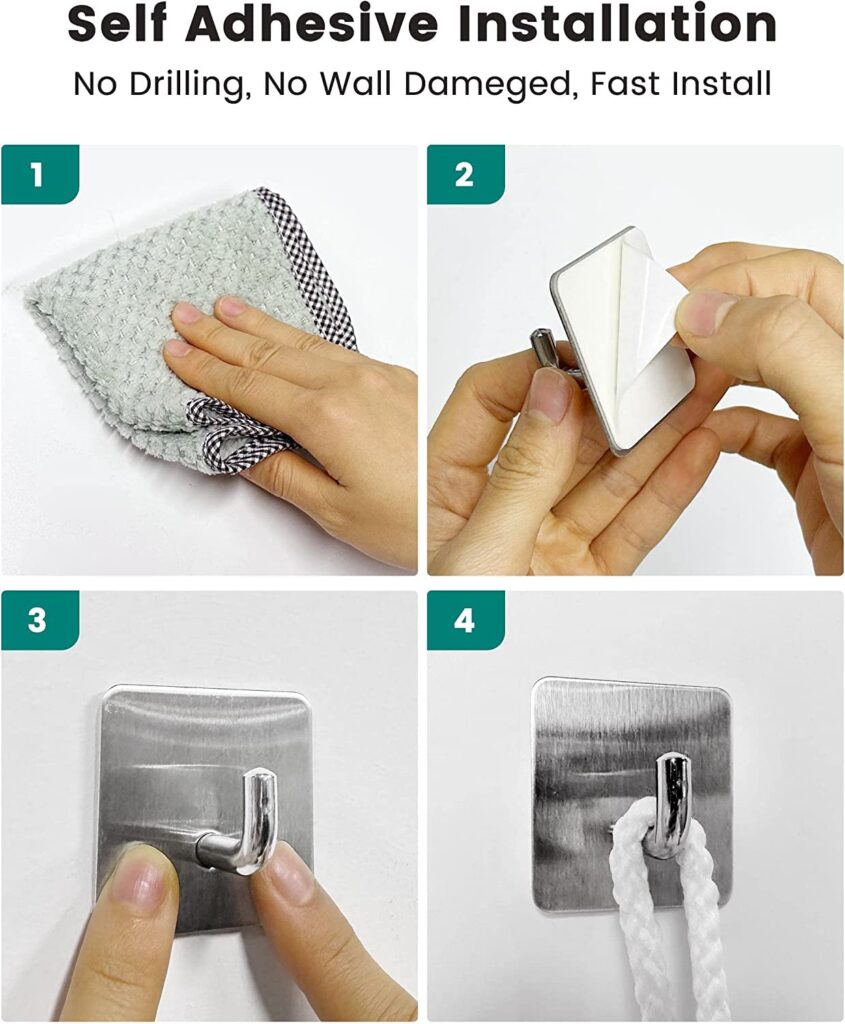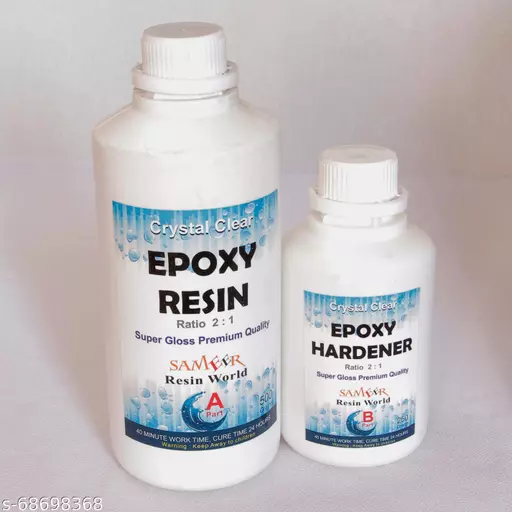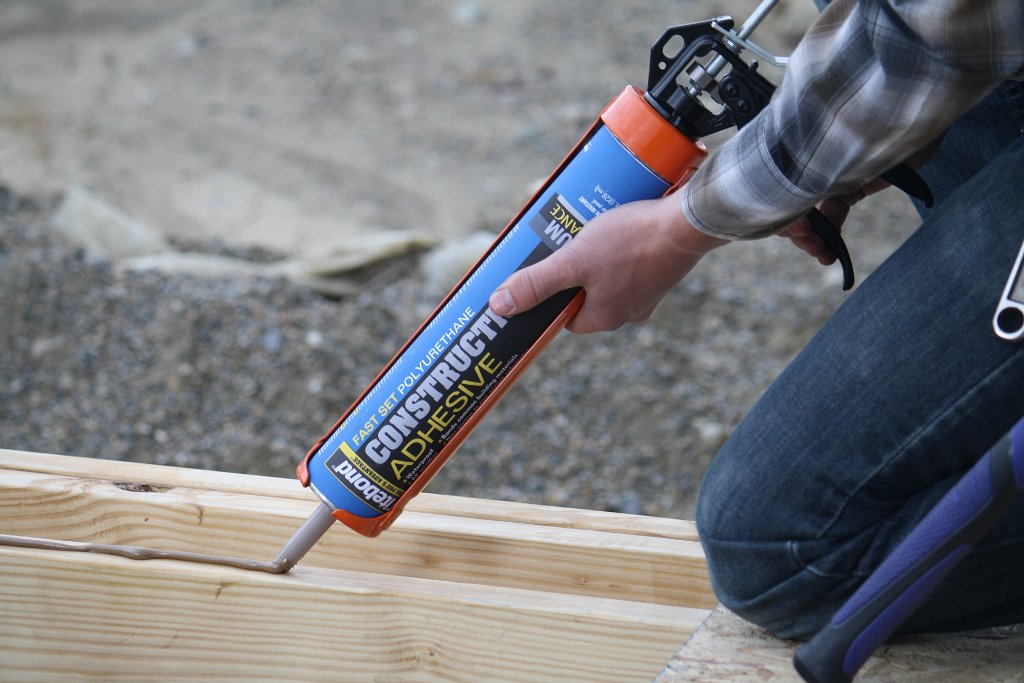Like other adhesive-based items, adhesive towel hangers can be safe when used appropriately and under the appropriate conditions, such as surface type, weight capacity, appropriate installation, etc.

Table of Contents
When utilizing adhesive towel hangers, keep the following things in mind:
Surface Type
Clean, smooth surfaces—like tile, glass, and some types of painted walls—are the ideal candidates for adhesive hangers. They might not stick to porous or rough surfaces very effectively.
Weight Capacity
Verify the adhesive hanger’s weight capacity to be sure it can hold the weight of the towels or other objects you intend to hang. The hanger may break if the weight is too much.
Appropriate Installation
Pay close attention to the manufacturer’s instructions when attaching the hanger. Before using the glue, make sure the surface is immaculate and give it time to dry completely.
Temperature and Humidity
Extreme heat or high humidity might have an impact on certain adhesive hangers. To determine whether a product is appropriate for your environment, review its specifications.
Removal
To prevent harming the underlying surface, remove the hanger safely by following the instructions if necessary. Adhesive residue can sometimes be difficult to get rid of.
Not for Heavily Used things
Because repetitive tension on the adhesive bond might degrade it over time, sticky hangers might not be appropriate for things that are taken on and off regularly.
Frequent Inspection
Make sure the hanger is still firmly attached by periodically inspecting its state. To avoid mishaps, it is advisable to replace it if it begins to deteriorate.
Adhesive towel hangers are a quick and easy fix, but they might not be as sturdy or long-lasting as towel bars or hooks that are fixed with metal. The type of wall or surface you’re working with, your particular needs, and your personal preferences will all influence your decision between adhesive and hardware-mounted hangers.
Which is the strongest adhesive glue for towel hangers?
The type of wall surface you’re working with, the weight of the towel hanger, and the towels it must support are all key considerations when choosing an adhesive or glue for towel hangers.
Consider the following adhesive options:
3M Command Strips
An increasingly common option for hanging small, light objects, like towels, are 3M Command Strips. They are made to function on a variety of surfaces, be damage-free, and be simple to remove. Make sure to select the appropriate one for your towel hanging, as they are available in various sizes and weight capacities.


Adhesive Hooks for Heavy Things
Certain brands include adhesive hooks that are strong enough to hold heavier objects. Towel hangers that have to hold greater weight can greatly benefit from these. Make sure you adhere to the manufacturer’s recommended weight capacity.
Epoxy Resin
Towel hangers can be attached to walls using epoxy, a powerful adhesive. It’s a more permanent fix, though, and getting rid of it without breaking the wall can be challenging. If you know exactly where you want the hanger to be, this is a fantastic option.


Construction adhesive
Construction adhesives, often known as liquid nails, are extremely strong adhesives that are usually utilized for heavier applications. They are not the best option if you intend to move the hanger around a lot. They work well for permanent installations.
Wall Anchors with Screws
Wall anchors and screws are an option if you are worried about the adhesive’s durability or if the towel hanging is particularly hefty. This will give you a very secure attachment, but if you ever want to take the hanger down, you’ll have to fill the holes it leaves in your wall.

How do you hang towels in a bathroom without drilling?
There are a number of other ways to hang towels in a bathroom without having to drill holes in the wall. Here are a few concepts:
Adhesive Hooks
Bathroom-specific adhesive hooks are available. They are simple to remove without causing damage to the wall and can retain robes and towels firmly. Regarding the weight restriction and installation, according to the manufacturer’s recommendations.
Install hooks or racks
that dangle over the top of the shower or bathroom doors to save space. This eliminates the need for drilling and offers a handy spot to hang towels.
Towel Bars with Adhesive Mounting
There are towel bars that can be mounted using adhesive. They can often withstand a fair amount of weight and are made to hold towels.
Command Hooks
For hanging towels without drilling, command hooks and strips are a common option. They are available in different weight and size ranges. Be sure the ones you choose can support the weight of your towels.
Suction Cup Hooks
Suction cup hooks are effective when applied to non-porous, smooth surfaces like tile or glass. You can use these to hang thin towels.
Towel Ladders
A fashionable and useful substitute is a freestanding towel ladder. It has multiple rungs for hanging towels, and you may lean it against the wall.
Towel Baskets
Use a metal wire basket or ornamental basket to hang towels over the side. This gives you a place to hang your towels and a decorative accent at the same time.
Magnetic Towel Holders
Certain towels have magnets connected to them that can be used to stick the towel to the metal of bathroom fixtures or appliances.
Towel Rings
Typically smaller in size, towel rings can be fastened using screws or glue. If you would like not to drill, look into sticky solutions.
Over-the-Radiator Towel Bars
If your bathroom has a radiator, install over-the-radiator towel bars on top without drilling.
What glue is stronger than superglue?
Depending on the particular materials and application, a number of adhesives can be stronger than superglue (cyanoacrylate adhesive).
The following are some typically stronger alternatives of superglue:

Epoxy Adhesive
The remarkable strength and adaptability of epoxy glues are well known. Although they exist in a variety of forms, they usually need to be activated by mixing two ingredients: resin and hardener. Epoxy, when cured, forms an extremely durable bond that is impervious to impact, heat, and chemicals.
Polyurethane Adhesive
Polyurethane adhesives provide exceptional flexibility and bond strength. Many materials, such as wood, metal, polymers, and more, can be bonded by them. Another benefit of polyurethane adhesive is its resilience to moisture and its long-lasting nature.
Structural Adhesives
Often utilized in the aerospace and automotive industries, these adhesives are made for high-stress situations. They may create incredibly strong and long-lasting bindings and are available in a variety of formulas, including methacrylate, urethane, and acrylic adhesives.
Contact Cement
For materials like rubber, laminate, and leather, contact cement is a powerful adhesive. When both surfaces are treated and allowed to dry before joining, it creates a strong, flexible connection.
Welding or Brazing
Although not strictly adhesive, the procedures of welding and brazing can provide incredibly robust bindings in metal applications. They entail the base materials being melted and fused.
Cyanoacrylate Gel is a form of superglue
Superglue is available in various formulations, with some being thicker and more robust than the typical liquid version. Because of their thicker consistency, they offer a stronger bond.
A number of variables, including the materials being bonded, surface preparation, and curing time, can affect an adhesive’s strength. It is crucial to choose the appropriate glue for your particular project and to carefully follow the manufacturer’s directions if you want the strongest and most dependable bond.
want to buy towel Click here